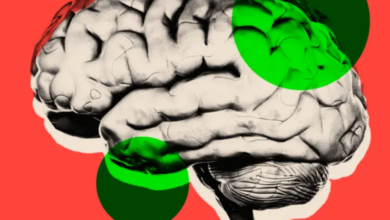Understanding holistic healthcare and how it is employed by nurses
Holistic healthcare is growing. According to a 2008 study by the National Institutes of Health, nearly 40% of all adults and 12% of children under 17 use some form of alternative or complementary medicine.
Men and women across America have been receptive to holistic healthcare, and healthcare institutions are waking up to it. Many now offer it to patients, especially those who suffer from chronic conditions such as cancer, heart disease, and diabetes.
Your nursing career can get a boost if you have a good understanding of holistic medicine and its applications, benefits, and drawbacks. Some nurses opt to get it through continuing education such as a distance accelerated BSN program. To qualify, you need to have a bachelor’s degree in any field and a GPA of 2.82. You should also have completed all prerequisite courses.
The course covers topics such as transitional care in primary and population health, complex nursing care and professional nursing practice. Within these modules, students will encounter holistic healthcare and its applications in different areas of nursing.
Before you enroll, it is important to have a basic understanding of holistic healthcare and how nurses are using it to improve patient care and treatment.
Table of Contents
What is holistic healthcare?
Simply put, holistic healthcare is a treatment approach that takes into account the physical, emotional, social, and spiritual facets of a patient’s health. Instead of using separate approaches to treat the ailments that a patient is suffering, holistic healthcare takes an integrated approach.
A nurse who practices this type of healthcare will consider a patient’s body, mind, and spirit. They will also look at their society, culture, and environment.
By taking all these factors into account, healthcare practitioners are better able to diagnose the causes of disease, and they can provide similarly comprehensive treatments.
How do nurses apply holistic healthcare?
Holistic healthcare is similar to patient-centered healthcare. Nurses get to know as much about a patient as they can.
This helps them understand the root of the problem, and in conjunction with other practitioners, they can provide treatments that aim for more than just the physical.
Imagine that a patient presents with heart disease, for example. The most straightforward form of treatment is to prescribe the right drugs and send them on their way.
A holistic nurse is required to do more than this. They will examine the patient’s history and lifestyle to pin down the likely reason for the chronic illness.
Heart disease may run within the family; it could be caused by a highly stressful job that doesn’t allow for exercise; or it may be because of a poor diet.
Apart from dispensing the right medications, the nurse may recommend a better diet, a less stressful job, or further genetic testing to determine whether there are personalized treatments that can give better outcomes.
Holistic nurses have certain responsibilities:
- They need to identify each patient as an individual.
- They must strive to understand the whole patient, not just facets of who they are.
- They have to establish good communication with their patients, encouraging openness and frankness.
- They must interact respectfully with both patients and colleagues.
- Holistic nurses should be able to point at contributory factors to a patient’s illness. They should discuss them with the patient and other colleagues who are involved in their treatment.
What are the accepted holistic treatments?
For a long time, holistic treatments were treated as a fringe form of medicine, suitable for those who didn’t wish to interact with the healthcare system.
Today, many of the treatments are accepted forms of treatment, and nurses can offer them to their patients.
They include acupuncture, aromatherapy, and hydrotherapy. Nurses can also recommend massage, hypnosis, wellness coaching, and Eastern medicine.
To help patients improve their lifestyles, holistic nurses often recommend dietary changes, exercise, and meditation. Some may offer their patients treatments such as guided imagery, reflexology, and herbs that are known to make a difference.
Benefits of holistic healthcare
Apart from helping patients achieve wellness, this type of treatment has additional benefits:
- It has helped reduce the stigma associated with mental health treatment.
- In some cases, the body activates its treatment mechanisms.
- Patients learn the value of preventive health.
- Patients who opt for holistic treatments have fewer invasive procedures.
- This form of treatment helps shed light on economic and social barriers and how they impact patient health.
Conclusion
You can be a much better nurse if you learn about holistic healing. You get to understand your patients and offer them treatments that take into account everything that may be contributing to their illness. Nurses who are trained in this type of healthcare are highly valued all over America.






